
Foreign Nations Funneled $60 Billion into U.S. Colleges – Professors Bought Off? Students Corrupted?

A powerful new report is drawing national attention to the enormous flow of foreign money into American colleges and universities. The findings raise serious concerns about national security, intellectual property theft, campus radicalization, and a lack of transparency. According to the report, nearly $60 billion in foreign gifts and contracts have been funneled into U.S. institutions of higher education over the last several decades. Even more troubling, hundreds of millions of those dollars have come from countries that are considered adversaries of the United States.
Who Is Investigating and Why
The report was published by Americans for Public Trust, a nonprofit and nonpartisan government watchdog. The group used data from the U.S. Department of Education, think tank studies, government investigations, and other public records to build a comprehensive picture of foreign influence on U.S. campuses. Caitlin Sutherland, the executive director of Americans for Public Trust, said, “For far too long, a staggering amount of foreign money has flowed into our colleges and universities with little to no transparency or oversight.”
Sutherland warned that many of the institutions receiving this money are not just ordinary schools. “Alarmingly, many of these schools are also top research universities that handle sensitive information and intellectual property.” She added that this foreign funding “can be traced back to countries that have well-established adversarial relationships with the United States or engage in direct or indirect malign activities against our country.”
Who Is Sending the Money
The report uncovered that $795 million came directly from countries like China, Russia, Venezuela, and Yemen. These nations are often hostile to the interests of the United States. In 2024 alone, China gave over $176 million to U.S. colleges and universities. In total, China has provided at least $130 million to the University of Pennsylvania during just a five-year span.
Qatar, a small but wealthy Middle Eastern country, is another major donor. In 2024, Qatar poured $342 million into American schools, making it one of the top foreign contributors. According to the report, “Some of the schools that received the most Qatari money included Ivy League members Harvard and Cornell Universities.” These are the same universities that have seen an increase in antisemitic protests and rhetoric since the October 2023 terrorist attacks in Israel by Hamas.
The report explained that “much of these foreign funds can be traced back to countries that have well-established adversarial relationships with the United States.” It also said that the financial ties have “coincided with a rise in anti-American demonstrations and radical ideas being cultivated at these institutions.”
How Much Money and Where It Goes
Some of the most prestigious universities in the United States have received the largest amounts of foreign funding. Harvard University leads the list with an estimated $3.2 billion. Cornell University and Carnegie Mellon University follow closely at $2.8 billion each. The University of Pennsylvania has taken in $2.5 billion, while the Massachusetts Institute of Technology (MIT) received $2.1 billion. In 2024, the University of Cincinnati topped the list for that year alone, with $237 million in foreign money. Cornell took in $203 million, Harvard $150 million, and Stanford $125 million.
A spokesperson for the University of Cincinnati claimed that the $237 million came mostly from bond issuances underwritten by the Royal Bank of Canada, not foreign governments. However, the report points out that many universities underreport or mischaracterize their sources of foreign money, making it difficult for the public to know what is really happening.
Under current federal law, colleges and universities are supposed to report foreign gifts or contracts valued at $250,000 or more. But many schools have failed to comply. In 2019, the Department of Education investigated a dozen top-ranked universities and found $6.5 billion in foreign donations that had never been reported. These included money from China, Russia, and Qatar.
The Risk to America’s Future
The main concern is not just the money itself, but what comes with it. Lawmakers and experts believe that foreign governments are using financial donations as a tool to shape campus environments, promote propaganda, silence criticism, and gain access to American research and technology. Representative Tim Walberg of Michigan, who chairs the House Education and Workforce Committee, said, “The current system has allowed foreign adversaries to infiltrate our colleges and universities.” He added, “Congress is taking action because it is imperative that we hold these universities — which have turned a blind eye for too long — accountable and bring to light malignant foreign entities lurking in our schools.”
The issue of foreign influence has become more urgent in the wake of rising antisemitism on college campuses. Since the October 7, 2023, Hamas attack on Israel, which killed more than 1,200 civilians and led to the kidnapping of hundreds of hostages, protests and antisemitic incidents have spiked at U.S. universities. Harvard and Cornell, both of which received large sums of money from Qatar, have been among the most affected. Columbia University faced serious backlash for allowing anti-Israel encampments, which eventually led the Trump administration to strip $400 million in federal grants from the school. Columbia later agreed to combat antisemitism, end left-wing political demonstrations on campus, and return to a more merit-based admissions system in order to regain the funding.
Legislative Action: The Deterrent Act
In response to these growing concerns, Congress introduced the Deterrent Act, which aims to stop foreign powers from influencing American education. The bill was passed by the House of Representatives with bipartisan support and is now awaiting action in the Senate. Representative Michael Baumgartner, one of the bill’s co-sponsors, warned that hostile foreign governments are using their money to “stifle academic freedom,” spread misinformation, and access valuable research.
The Deterrent Act would lower the threshold for reporting foreign gifts from $250,000 to $50,000. For countries seen as hostile to the United States, including China, Russia, Iran, and North Korea, the reporting requirement would be lowered to zero. That means even the smallest financial interaction would have to be reported.
The bill would also require universities to report investments in their endowments that come from foreign sources and make all foreign funding disclosures available to the public. It gives the U.S. Attorney General the power to investigate violations and bring civil lawsuits against schools that fail to comply. Universities that repeatedly ignore the rules could lose their eligibility for federal financial aid programs, which many students rely on to pay for college.
Final Thoughts
The flood of foreign money into American universities is more than just a financial issue. It is a matter of national security, cultural stability, and intellectual independence. As Caitlin Sutherland put it, “Elected leaders need to take action to crack down on reporting lapses at these institutions to increase accountability and raise public awareness about the entities and individuals influencing these institutions.”
If steps are not taken to monitor and limit this funding, the future of American higher education may be shaped by interests that do not share our values or respect our freedoms. The Deterrent Act and similar measures represent a critical effort to protect America’s academic institutions from becoming tools of foreign influence.



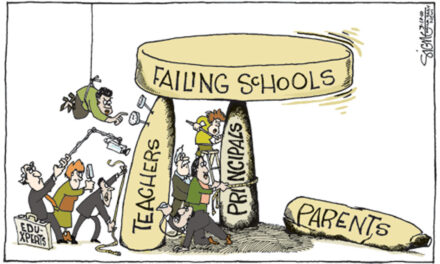







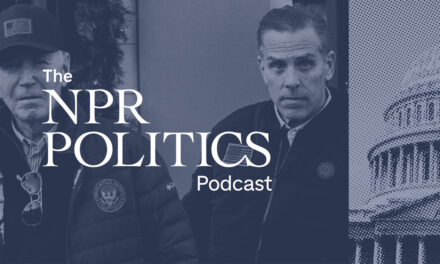







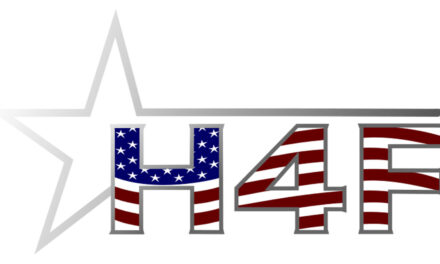



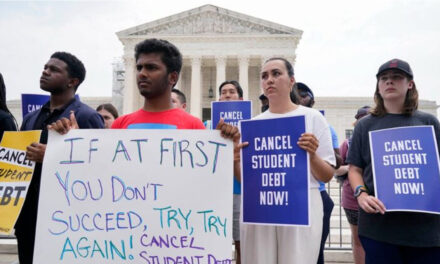
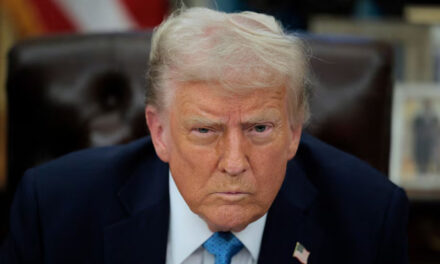
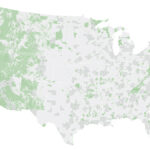



Come on man: “The report was published by Americans for Public Trust, a nonprofit and nonpartisan government watchdog.”
“Americans for Public Trust is a right-of-center watchdog group that was formed in early 2020 and is operated by Caitlin Sutherland, former research director for the National Republican Congressional Committee. The majority of the organization’s public-facing work since its founding has focused on filing ethics complaints with the Federal Election Commission (FEC) regarding alleged misuse of campaign funds or potential violations of campaign finance law against Democratic members of Congress, Democratic candidates, and left-leaning donors.
In addition to being led by Sutherland, the organization employs former Nevada Attorney General Adam Laxalt (R) as outside legal counsel.” Their office is a UPS store in Virginia and tax records not available.
It’s like shooting fish in a barrel; I would hope PBP editorial staff might do better. This “nonpartisan” group has yet to take issue with the right, only fires away at the left, and, trust me, this non-profit makes money for it’s players. In 2022, they pulled in over $1.5M and the owner took home $170K; only two other employees making $120K each; I call that un-non-profit. The owner took $170K the previous year too, only had one employee, he got $110 that year. Her first year netted her $162K, her lacky got just over $100K — pretty good raises.
Lest you think I am biased, for Media Bias/Fact Check: “Overall, we rate Influence Watch Right Biased based on the left-leaning sources they more frequently profile, as well as the use of loaded words such as “extremist” to describe liberal policy. We also rate them High for factual reporting due to proper sourcing and a clean fact check record.” Top donors include: Exxon-Mobil, Koch Industries, and the Lynde and Harry Bradley Foundation. Oye.
So this is a small, biased, right-wing single-person shop that goes after the left-wing while struggling to get donations to stay afloat. Looks like they will not last too much longer. “The report was published by Americans for Public Trust, a nonprofit and nonpartisan government watchdog” seems such a stretch as to be a lie.
Come on man, you can do better. If you blew this one this bad, what else have you fucked up?
Sad part is that the issue is important, there’s something bad going on, it’s been going on since the 1970’s Japan-bashing craze took the country. While I can’t source it, I remember way back then complaining that foreign money/donations could come with strings like buying an entire research facility, owning the top floor with no public access, and ownership of all proprietary discoveries by students in said research facility. Twas a Japanese manufacturer in the 70’s.
What is needed is an accounting and then full transparency going forward. Our higher education is the envy of the world; getting donations is fantastic, but we must assure ourselves, through monitoring and full transparency that there are no strings that affect our national security away by trading secrets we consider proprietary. This problem has been going on for over a half century, let’s fix it now. Perfect problem for a Trump legacy solution. Don’t stop it, co-op it.